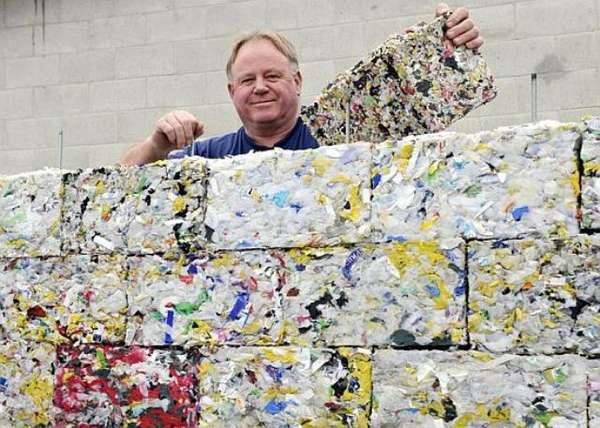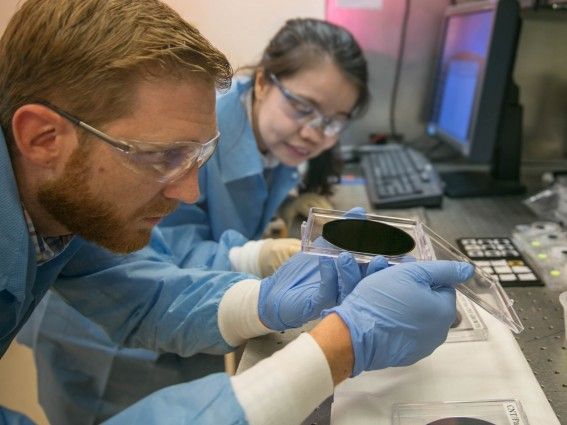Page 10953
Aug 3, 2016
Scientists are one step closer to understanding nuclear fusion power
Posted by Sean Brazell in categories: nuclear energy, physics
Researchers have developed a new way to explore some of the most extreme environments in the universe by combining three separate branches of physics.
Aug 3, 2016
One man turned his Tesla into a giant ‘Pokémon GO’ machine
Posted by Shailesh Prasad in categories: cybercrime/malcode, sustainability, transportation
We don’t recommend playing “Pokémon GO” while driving, but we have to admit this Tesla hack is cool in theory.
Aug 3, 2016
Elusive neutrinos and hypothetical ‘dark sector’ particles could hold answers to cosmic mysteries
Posted by Andreas Matt in categories: cosmology, particle physics
All material things appear to be made of elementary particles that are held together by fundamental forces. But what are their exact properties? How do they affect how our universe looks and changes? And are there particles and forces that we don’t know of yet?
Questions with cosmic implications like these drive many of the scientific efforts at the Department of Energy’s SLAC National Accelerator Laboratory. Three distinguished particle physicists have joined the lab over the past months to pursue research on two particularly mysterious forms of matter: neutrinos and dark matter.
Neutrinos, which are abundantly produced in nuclear reactions, are among the most common types of particles in the universe. Although they were discovered 60 years ago, their basic properties puzzle scientists to this date.
Aug 3, 2016
World’s first human head transplant patient awaiting new information
Posted by Dan Kummer in category: biotech/medical
Valery Spiridonov, from Russia, is set to undergo the risky procedure next year. The 31-year-old, who is wheelchair reliant due to a muscle-wasting disease, spoke at a press conference today.
Aug 3, 2016
ORNL optimizes formula for cadmium-tellurium solar cells
Posted by Karen Hurst in categories: solar power, sustainability
Nice and Kudos to ORNL.
A team led by Jonathan Poplawsky of the Center for Nanophase Materials Sciences used advanced microscopy techniques to discover efficiency differences of crystalline structures of various mixtures of cadmium, tellurium and selenium. In fact, selenium is an integral part of the formulation that resulted in a world record for solar cell efficiency. The team’s paper is published in Nature Communications.
While some of today’s solar cells use a blend of cadmium and tellurium to convert light into electricity, adding the optimum amount of selenium in the right places could help increase efficiency from the current mark of about 22 percent to levels approaching the theoretical limit of 30–33 percent. The trick is to determine the best ratio of selenium.
Continue reading “ORNL optimizes formula for cadmium-tellurium solar cells” »
Aug 3, 2016
‘Second skin’ protects soldiers from biological and chemical agents
Posted by Karen Hurst in categories: biological, military
Amazing and can serve many areas.
(DOE/Lawrence Livermore National Laboratory) In work that aims to protect soldiers from biological and chemical threats, a team of Lawrence Livermore National Laboratory scientists has created a material that is highly breathable yet protective from biological agents.
This material is the first key component of futuristic smart uniforms that also will respond to and protect from environmental chemical hazards. The research appears in the July 27 edition of the journal, Advanced Materials.
Continue reading “‘Second skin’ protects soldiers from biological and chemical agents” »
Aug 3, 2016
A Once-Closed Russian Military Town In The Arctic Opens To The World
Posted by Karen Hurst in category: military
Anyone want to visit Roslyakovo in Russia’s artic region?
For generations, Roslyakovo was a secret city with restricted access, even for Russians. The shipbuilding center was a place to work on military technology, and also a perfect place to hide things.
Aug 3, 2016
Russian web hosting service a favorite among cybercriminals
Posted by Karen Hurst in categories: cybercrime/malcode, internet
A Russian web hosting service is providing an avenue for cybercriminals to set up sites for selling stolen passwords, credit cards, and other pilfered personal information, a cybersecurity firm said.
The web hosting company Deer.io has become popular among online thieves because it’s easy to use and asks few questions from users, said Rick Holland, vice president of strategy at the cybersecurity firm Digital Shadows, on Tuesday at the Black Hat cybersecurity conference in Las Vegas.
Continue reading “Russian web hosting service a favorite among cybercriminals” »

















